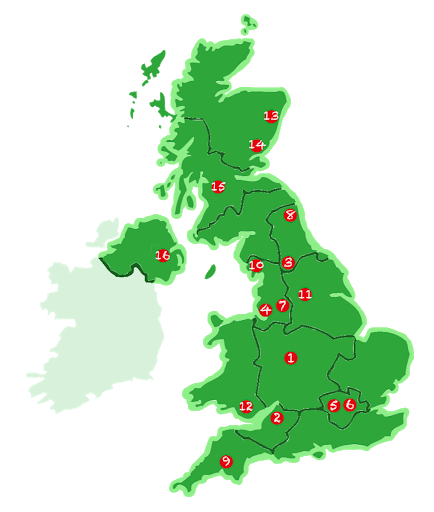Loading...


10 tips to picking Dental Schools.
Over the next year you will need to decide which 4 dental schools to apply to and which university offer to confirm. It is important to invest time into informing yourself about all your options. The university you choose will become your home for the next 5/6 years. University is about more than just education, the people you meet and experiences you have at university will have lifelong impacts. Consider which dental school and course best suits you and your aspirations. To choose a dental school, research each individual course and university using their university websites and prospectuses. In addition to this, talk to as many dental students as possible, opportunities for discussions may arise at open days or on work experience. The governments Discover Uni tool provides student course and subject reviews.
1. Research Dental Degree Types
There are different career pathways for prospective dentists. Most commonly students complete an undergraduate degree at one of the 16 dental schools in the UK, followed by completing their Dental foundation training or vocational training. These bachelor’s degrees usually last 5 years. Alternatively, Aberdeen, King’s, Liverpool and UCLan Dental schools all offer 4-year postgraduate degrees. These are tailored for students who have completed a previous undergraduate degree on a course relevant to dentistry such as biomedical sciences. Considering what pathway, you wish to take to become a dentist is the first thing to consider.
2. Look at Statistics about Dental Schools.
Dentistry- Top UK University Subject Tables and Ranking 2021
Each dental school will be part of a different university, researching each of these institutions will help you to make an informed decision. Think about the size of the University and its Reputation. It may be useful to refer to reviews of the university using Discover Uni, Quality Assurance Agency for Higher Education and Unibuddy. Moreover, there are several official league tables and statistics published by: The Guardian, The Times, The Complete University Guide and Teaching Excellence Frameworks.
3. Decide on the type of University you want to attend.
The infrastructure and location of university facilities differs between Dental Schools. Consider whether you would feel more comfortable studying at a campus university or in a city.
4. Research or explore the University city.
Whichever University city you choose you will call this place home for the next 5/6 years. Consider if the university is based in a big city or big town. The living costs can vary widely based upon where you are in the country. Different cities amenities and facilities lend themselves to the wants and needs of different students variably. Not only researching the local area but visiting gives you a feel of what it is like.
5.Consider the distance from home and research transport costs .

The 16 Dental Schools across the UK are in a variety of cities and towns of different sizes and in different locations. An important consideration to take when applying to Dental School is the distance of the University from where you are currently living and your home support system. Many students wish to move further away from home to experience a new city, develop independence and learn to look after themselves away from friends and family. Being pushed out of your comfort zone is likely to open opportunities to new experiences and broaden your horizons. Despite this, it is still possible to develop independence when studying a little closer to home. The transition to university is a huge milestone in your lifetime. Having an accessible support system (and perhaps a close by washing machine and home cooked meal) can help make this transition smoother. Consider the public transport connections in the area you will move to and the price of travel to and from home.
6. Research different course types.
Course Types- Dental Schools Council
Across the country different dental schools have different curriculums and teaching style methodologies for their undergraduate courses. Using individual University websites and prospectuses you get a greater understanding about the curriculum and course each dental school offers. When choosing which type of course you would like to enrol in consider what type of teaching style would suit your preferred methods of learning. All teaching styles have their strengths and weakness, and different styles will fit the preferences of different students. On the internet several personality-based quizzes can be used to find which course types suits you. The main dental course types are listed below:
- Traditional courses are structured based upon preclinical years where students learn scientific theory and clinical years where teaching is delivered in a clinical setting.
- Integrated Courses combine clinical training and theoretical learning from the first year, they often focus on a “systems” approach structuring the course based on physiology, anatomy, and pathology of different human systems.
- Problem based learning is an evidence-based group teaching approach. Students focus on learning from clinical cases and learn from the perspective of a patient. You will work in a team to solve a problem linked to dentistry.
- Case based learning is like problem-based learning where students develop the knowledge and skills to address a patient’s case.
- Enquiry based learning poses questions, problems, and scenarios which students must study and investigate to gain knowledge based on the dental curriculum.
7. Consider potential clinical placements.

As a dental student you will be exposed to clinical teaching in local practices and larger hospitals. As part of your University specific research use the University websites to find out about some of the institutions you will be working in. Some Universities may have links to highly specialised dental wards etc.
8. Explore opportunities different dental schools offers.
Several dental schools offer flexible learning opportunities which will improve your future career options and expose you to new opportunities. Some Dental Schools offer an intercalation year. Students who choose to intercalate will take a year away from Dentistry, between second and third year studying as part of another subject to gain a BSc. Each University offers different intercalation options.
9. Research the selection process of different dental schools.

Applications to dental School are highly competitive. To maximise your chances of gaining an offer you need to research each universities selection process understand how the university weights different parts of your application. Consider whether you meet academic criteria thresholds and how students are selected for interview. All UK Dental Schools require students to sit an admissions test. Accept Leeds University which requires BMAT, most Dental Schools utilise UCAT scores. How the university uses these scores will differ. Some universities use Multiple Mini Interviews and others traditional/panel interview, consider what your interview style preference would be.
10. Attend university open days.
By doing university specific research you can make decisions about which dental schools you will select as part of your shortlist. Visiting the University and University city on an open day can help you to narrow down your choices. Some students may decide to only visit two or three of their choices whereas other students may visit 5 or 6. Visiting the university gives you a real-life experience of what studying at this university would be like. In addition to attending talks and presentations about the university, course, accommodation, and student finance you will have the opportunity to talk to current staff and students. Getting insight from students currently studying at each university gives you a thorough understanding of what life at each Dental School is really like. At open days they may even provide you with information which will be useful down the line when it comes to interviews.
Frequently Asked Question
How do I choose the best dental school?
In order to select the best dental school for you there are a number of important considerations to make. Each dental degree will differ in the opportunities they provide and their teaching strategy. Consider which Think carefully about what the University has to offer, within and beyond your dentistry degree.
What is important to you in selecting a dental school?
Matching your wants, skill and personality to the Dental Schools you apply to can help you to maximise your chances of getting a place on the degree, and enjoying your 5 years of study.
How can a dental school applicant stand out?
In order to boost your dental application you must show that you are knowledgeable and passionate about a career in dentistry. This can be achieved by taking part and reflecting on work experience and both extracurricular and super-curricular activities.
How can I increase my chances of getting into dental school?
Researching each dental schools admissions process and student selection criteria can help you to utilise your strengths to maximise the chance of gaining a place at Dental School.
Related links
MMI interview preparation with our live interactive day and comprehensive feedback
Personalised 1-1 lessons, tailored to your interview preparation
Covering 8 interview topics, with model answers, live MMI analysis and hot topics




Was this article helpful?
Still got a question? Leave a comment
Leave a comment